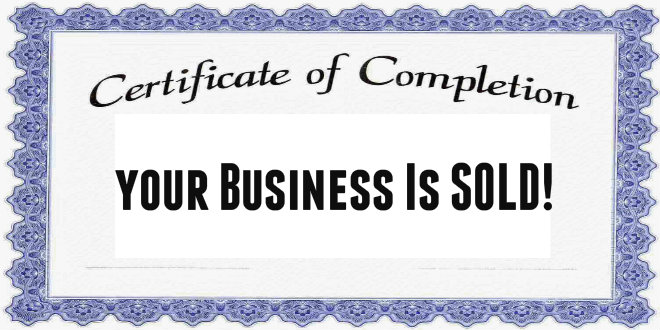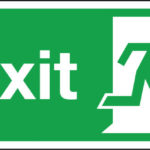
How to choose a business lawyer that’s right for you
Throughout the years I’ve unfortunately had to use lawyers on several accounts. I say ‘unfortunately,’ because legal proceedings have never been an enjoyable experience for me. A few times I had to seek settlements from clients, I’ve gone up in front of an employment tribunal (for unfair dismissal) and most recently, I used a lawyer to help me exit my business.
Fortunately, however, every lawyer I’ve used helped me to achieve the intended outcome. Sometimes, however, I look back and think that my choice of outcome might have been wrong. In fact, that’s my largest gripe with solicitors – you tell them what you want and they get to work rather than perhaps offering alternative solutions.
Let me digress.
Many lawyers fail to propose fixed fees or fully detail the legal process involved and the client is left with an ever widening black hole of debt.
Looking back upon my employment tribunal case, if I knew then what I know now, I would have never fought for ‘principal’. An ex-employee sought legal advice because he claimed he was fired for being gay. From my perspective, the ex-employee was dismissed because he was always late, called in sick often, rarely hit targets and failed to do the same job that his peers were doing. Furthermore, he was employed for only 10 months before being fired.
Because of my need to prove the truth it cost me over £25,000 to ‘win’ the case and when I won I didn’t really win. The process took two years, caused terrible stress and the whole case seemed to go on and on and on. I learned the hard way that the legal system and courts favour the employee – even if you have 100% proof against the claim.
The solicitor I used was a very professional and sensible man. He explained the worst-case scenario yet felt it would never get to the courts. Well…he was wrong. After hiring him and then the barrister to argue the case, I was left out of pocket and deflated. There was no sense of victory. And the ex-employee lost nothing. He didn’t have to pay to string me along for 2 years!
Perhaps it’s one of those lessons that you have to learn yourself? But I can’t help but feel the solicitor didn’t prepare me for the rocky road I had to walk. Looking back, I wouldn’t worry so much about principle – I’d find a way to resolve things as quick as possible so I could go on and live my life. Hindsight is a great thing – I do wish, however, that the lawyer offered alternatives that were perhaps easier, cheaper and took less time.
Digression over.
Let’s face it – lawyers are not the most liked people
The general public looks at them through weary eyes. Lawyers have the capability to twist, turn and respond to any query with legal babble talk leaving the listener to wonder what’s really going on.
Finding a good, reputable, proactive, straight-talking, client service led UK lawyer isn’t always an easy task
I think another thing that really causes anxiety when finding a lawyer is that you know you’re screwed if you don’t get the right one. It’s not like you’ll be able to sue the lawyer if they do a bad job – will you?
But here’s a service that might help…

While connecting with people and businesses over Twitter I came across LawyerFair. They offer a UK lawyer comparison service that looks very beneficial to business owners.
Using LawyerFair is very straightforward:
- Fill in a small form detailing your requirements. The form is in 3 parts and asks basic information about the legal requirements necessary, where you are in the process, whether you want fixed fee or not. It also asks for a budget, whether you want a local solicitor or are willing to work with a remote one. You’ll easily complete the form within 5 – 10 minutes. At the end of the form, you’ll need to register for the free service so LawyerFair can respond to your request.
- You’ll then receive up to 3 proposals for your request within 48 hours.
- You can check the various lawyers profiles and how other users rated them
- Chose a solicitor that suits your needs best based on profile, past experience, cost and gut feeling
The main element of LawyerFair that excites me is the review aspect. If past clients are unhappy with a lawyer, they can make their feelings known. Any LawyerFair recommended lawyer will know that potential and most likely work hard to ensure top marks are giving.
On the flip side, however, for comparison sites to work you need quite a bit of work to flow through them. A comparison site is no good if the majority of recommendations haven’t been rated by others.
That being said, the service has been created to help business owners to make more informed decisions when seeking legal advice. The service is free so there’s nothing to lose by giving it a go.
When it comes to using lawyers in the UK, my advice is this:
- Make sure you consider the ramifications of the outcome you want. Ask the solicitor what the process is likely to be and consider the worst-case scenario and whether you’re okay to live through it.
- Give LawyerFair a go at http://www.LawyerFair.com
To read about my experience with lawyers when exiting my business, read this: How Could My Company Be Valued £500k By One Broker and £3.6m By Another?




 So there you are, you’ve just finished uploading your last document into the virtual data room and ticked off the corresponding item from the list provided to you by your solicitor or business broker.
So there you are, you’ve just finished uploading your last document into the virtual data room and ticked off the corresponding item from the list provided to you by your solicitor or business broker.

 Find the best solicitor you can to help you sell your business and guide you through the business sale process. If you already have a good solicitor, consider yourself lucky. Completing a business sale is a job that requires exposure to all functions of business as well as understanding the legal terms and law. Choosing a solicitor should be at the top of your list when you are committed to sell a business.
Find the best solicitor you can to help you sell your business and guide you through the business sale process. If you already have a good solicitor, consider yourself lucky. Completing a business sale is a job that requires exposure to all functions of business as well as understanding the legal terms and law. Choosing a solicitor should be at the top of your list when you are committed to sell a business.
 5 Key Due Diligence Requests
5 Key Due Diligence Requests
 Going From Hating Your Company To Exiting It
Going From Hating Your Company To Exiting It
 How to stay alert and healthy when selling your business
How to stay alert and healthy when selling your business
 Who better than to learn from one of the Sell Your Business co-owners, than Joanna! She can rightfully offer lessons learned from selling a UK business! I interviewed Joanna in the hopes that her experience will shed some light on various factors that might be able to help you or prevent you from making mistakes.
Who better than to learn from one of the Sell Your Business co-owners, than Joanna! She can rightfully offer lessons learned from selling a UK business! I interviewed Joanna in the hopes that her experience will shed some light on various factors that might be able to help you or prevent you from making mistakes.